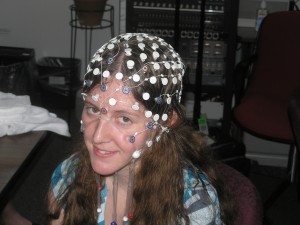Group 13: Project Plan
Our project, as described previously, is to investigate the science of “mind-reading.”
We will perform a review of primary literature as found through the library’s many databases to understand where this technology is today and where it may go in the future. Most of this research will be done independently; we will meet weekly (the day will vary week to week based on our individual schedules) to compile the information we find. Relevant data and results from recent fMRI studies will be presented in our poster.
Each of us will focus on a specific topic:
- Maddy: How fMRI (the primary tech used for “mind-reading”) works
- Adam: Current research being done
- Jackie: Applications of “mind-reading” technology
We expect to find that although no one can currently “read” a person’s thoughts, memories, or dreams, researchers are working on this — right now, you need to obtain template images of a person’s brain during different activities for later comparisons and predictions about what the person is thinking. Reading “abstract” thoughts isn’t yet possible.
